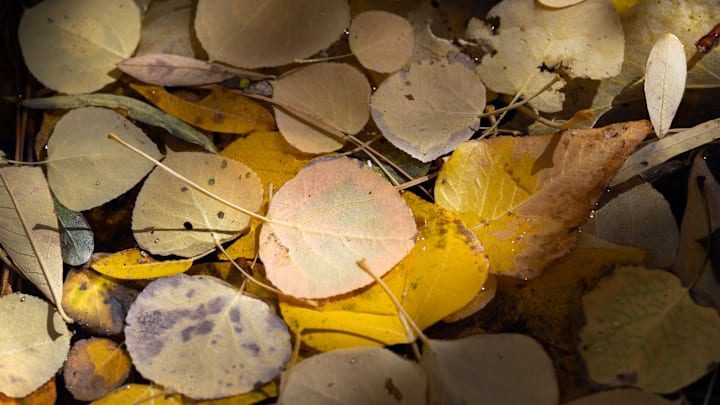There’s something distinctly different about the way that life smells when autumn arrives. The air smells sharper, the trees look like they’re on fire (in a good way), and for a moment, everything feels perfectly cozy.
But have you ever stopped to wonder what that signature “fall smell” actually is? Spoiler: it’s not pumpkin spice.
The Chemistry of Fallen Leaves
The smell of autumn is, quite literally, the scent of nature winding down. When leaves fall from trees, they don’t just lie there looking pretty; they start to decompose.
As they break down, bacteria and fungi in the soil get to work digesting the organic material, releasing gases called volatile organic compounds. These are the same types of molecules responsible for the smell of fresh-cut grass or wet pavement (equally delicious, in our opinion).
In the case of fallen leaves, these gases carry earthy, musky, slightly sweet notes. Depending on where you live, that smell might have its own regional twist: swampier near the coast, woodier in the mountains, maybe even a little smoky.

Why Fall Makes the Scent Much Stronger
Part of why the smell hits differently in autumn has to do with the air itself. Warm, humid summer air traps odors, mixing them into one big olfactory soup. But when cooler, drier air rolls in, it clears the clutter. The atmosphere holds fewer scent molecules overall, which means your nose can pick out individual smells (like decomposing leaves) much more distinctly.
Temperature and daylight shifts also tell trees it’s time to power down. As chlorophyll (the green pigment that helps them make food) breaks down, it reveals those golden and crimson hues underneath.

You May Also Like:
Add Mental Floss as a preferred news source!
There’s Also the Nostalgia Aspect
Of course, the scent of fall also lies in emotion. Our sense of smell is wired straight to the parts of the brain that handle memory and emotion, the amygdala and hippocampus. That’s why a single whiff of autumn air can trigger a flashback to your childhood. It’s a shortcut straight to nostalgia, a phenomenon scientists sometimes call the Proust effect.
From a biological standpoint, familiar scents can lower stress levels and make us feel more connected to our environment. So even though the smell of fall technically comes from decay, our brains interpret it as soothing and satisfying.
So the next time you find yourself kicking through a pile of leaves or pausing to breathe in that crisp air, remember: you’re smelling life recycling itself. It’s a mix of science and sentiment!
